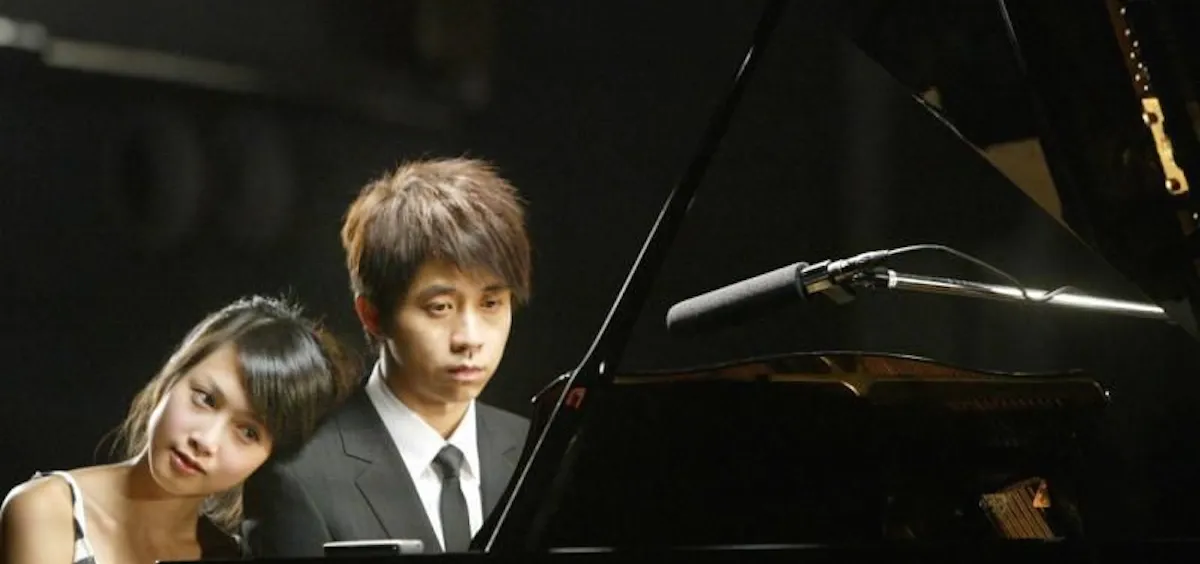On the birthday of singer Guang Liang, we look back at the song that swept Asia a decade ago
August 30 is the birthday of Malaysian-Chinese singer and actor Michael Wong (Wong Kong Leong), known as Guang Liang (光良) to the world of Mandopop, one of Malaysia’s most decorated Chinese singers and contestant on the first season of Hunan TV’s “The Singer.”
Not ringing any bells? How about: Guang Liang, singer of the hit song Tonghua (童话, Fairy Tale), which has won 21 different music awards throughout Asia, been covered in at least five other languages (Japanese, Korean, Vietnamese, Malay, and Cambodian, not to mention several Cantopop versions), and wafted out of almost every KTV joint and mall in not only China but overseas Chinese communities for a good half of the last decade (until replaced by other earworms).
On its release in January 2005, Tonghua the album sold 1.2 million copies, and judging from efforts on YouTube, appears to be a perennial favorite song for foreigners to cover when making their first forays into Mandopop.
Many on Zhihu,China’s Q&A platform, wonder how one of Mandopop’s biggest “drool songs” could achieve such popularity. The consensus, from Zhihu and Tonghua’s album reviews on Douban appears to be:
1. The lyrics are simple. Very, very simple. Easily picked up by any non-native speaker of Mandarin, they eschew tortuous syntax, even doing away with those pesky requirements, meter and rhyme (see translation at bottom).*Lest we’re accused of being haters here at TWOC, other lyrical efforts by Wong, such as 2006’s Dou Shi Ni (都是你, All You), show decent rhyming ability—but then, they’re not as popular.
2. The whole song consists of three parts—verse (A), bridge (B), and chorus (C)—in the following arrangement: ABCBCCC.
3. Climactic swelling of music signalled by key change: Essential for any melodramatic love ballad, Tonghua improves on the usual formula by having not one, but two such key changes (the result is more like ABCBCC!!C!!!!!).
4. An extended, six-minute, dialogue-filled video that’s quite blatant about milking the audience’s emotions.
This last point may be key, because 2005 – 2010 saw the South Korean TV-and-pop music wave begin in Asia, with the former especially bringing a net increase to the consumption of (spoiler alert) teary terminal-illness storylines and star-crossed love. Coincidence? Sing along and decide for yourself.
Lyrics
VERSE
忘了有多久 再没听到你
wàngle yǒu duōjiǔ zài méi tīng dào nǐ
I’ve forgotten how long it was since I’ve heard you
对我说你 最爱的故事
duì wǒ shuō nǐ zuì ài de gùshì
Tell me your favorite story
我想了很久 我开始慌了
wǒ xiǎngle hěnjiǔ wǒ kāishǐ huāngle
I thought for a long time; I started to panic
是不是我又做错了什么
shì bùshì wǒ yòu zuò cuòle shénme
Did I do something wrong again?
BRIDGE
你哭着对我说 童话里都是骗人的
nǐ kūzhe duì wǒ shuō tónghuà li dōu shì piàn rén de
You tell me in tears, all fairy tales are lies
我不可能 是你的王子
wǒ bù kěnéng shì nǐ de wángzǐ
I couldn’t possibly be your prince
也许你不会懂 从你说爱我以后
yěxǔ nǐ bù huì dǒng cóng nǐ shuō ài wǒ yǐhòu
Perhaps you can’t understand, that since you said you love me
我的天空 星星都亮了
wǒ de tiānkōng xīngxīng dōu liàngle
All the stars in my sky began to shine
CHORUS
我愿变成童话里 你爱的那个天使
wǒ yuàn biàn chéng tónghuà li nǐ ài dì nàgè tiānshǐ
I’m willing to become your favorite angel from the fairy tale
张开双手 变成翅膀守护你
zhāng kāi shuāngshǒu biàn chéng chìbǎng shǒuhù nǐ
Stretch out my arms, turn them into wings to protect you
你要相信 相信我们会像童话故事里
nǐ yào xiāngxìn xiāngxìn wǒmen huì xiàng tónghuà gùshì lǐ
You have believe, believe that we’ll be like the fairy tale
幸福和快乐是结局
xìngfú hé kuàilè shì jiéjú
Happiness and joy is our ending
BRIDGE
CHORUS
CHORUS 2
我要变成童话里 你爱的那个天使
wǒ yuàn biàn chéng tónghuà li nǐ ài dì nàgè tiānshǐ
I want to become your favorite angel from the fairy tale
…
CHORUS 3
我会变成童话里 你爱的那个天使
wǒ yuàn biàn chéng tónghuà li nǐ ài dì nàgè tiānshǐ
I will become your favorite angel from the fairy tale
…
一起写我们的结局
yīqǐ xiě wǒmen de jiéjú
Write our ending together
Happy belated Qixi Festival to all, and a very happy 47th to Guang Liang, master of emotional manipulation.
Cover image from Yule.com.cn












